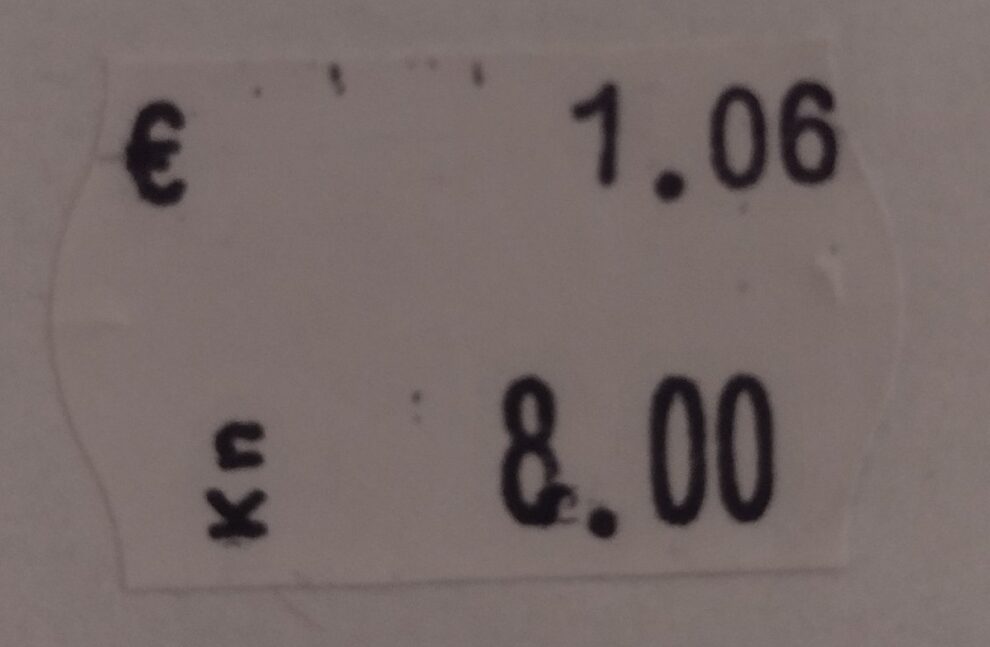With the last day of 2023, the Croatian kuna might disappear from shops, cafes, businesses, you name it. Dual price display has been mandatory since September 5 last year, and the obligation ends on December 31. However, retailers are not prohibited from displaying their prices in both currencies after January 1, if they so wish.
“Customers are not yet used to the euro, according to the previous results of the survey we are conducting. They need more time, which is why we have sent a letter to the Ministry of Finance asking for dual price reporting in 2024 as well”, Ana Knežević, president of the Croatian Association for Consumer Protection (HUZP), told 24Sata. The survey is available on the association’s website, which, Knežević adds, is constantly contacted by consumers worrying about whether the practice of dual pricing will continue.
“They convert prices into Croatian kuna, and they are nervous about how this will work when the prices are only displayed in euros. However, small, neighborhood businesses also contact us, as most of their customers are the elderly population. I recently asked some students what they, the young people, think, and the answer was the same – they still convert prices back into kuna, and the current system helps”, notes Knežević.
As she says, consumers would get used to only euros if there were no constant price changes.
“Not a single country has introduced the euro with constantly rampant prices and such high inflation. According to statistical data, food in Croatia has risen in price by 30 percent in the last two years”, says Knežević. The Ministry of Finance responded to the association’s proposal, saying that 16 months of dual price reporting was enough for consumers to get used to the euro.
The recommendation of the European Commission does not prevent a member state from continuing the dual display of prices. There is no rule according to which, as of January 1, traders may no longer have prices in both euros and kuna. In HUZP, they hope that businesses will continue this practice, but Martin Evačić, director of NTL (National Trade Chain), also the president of the trade association, believes that this is not necessary.
“For us traders, dual pricing is also a big burden, because it requires double records, generally more work. The trader, if he wants, can keep dual prices, and many will probably still have them for a month or two next year, that is, kuna will gradually disappear, as the prices change”, says Evačić. The Croatian kuna, in other words, does not have to disappear from the shelves overnight.
“But it’s hopeless for those who haven’t learned so far”, Evačić believes.
Trade expert Slobodan Školnik also believes that 16 months was enough.
“Consumers will get used to it right away, even easier when the equivalent in kuna is not displayed”, he is convinced.
As stated in the reply of the Ministry of Finance to the Croatian Association for Consumer Protection, “besides making it easier to get used to the new currency, the obligation of dual pricing was introduced primarily with the aim of protecting consumers, in order to make it easier to see which businesses have incorrectly converted their prices or have unjustifiably increased the prices of their goods or services.”
The laws of the member states that last introduced the euro as an official currency were also analyzed. In particular, the experiences of Slovenia, Slovakia, Latvia, and Lithuania were taken into account. In the mentioned countries, the period of double pricing began immediately after the publication of the Decision of the Council of the European Union, which determined the fixed conversion rate, and lasted six months from the day of the introduction of the euro, except in Slovakia, where the obligation lasted 12 months from the day of the introduction of the euro, says the Ministry.
Respecting the recommendations of the European Commission and the practices of other member states that recently introduced the euro, the Ministry of Finance considers that a total of 16 months of dual price reporting is appropriate for getting used to the new currency, they concluded.
Source : Total Croatia News





































